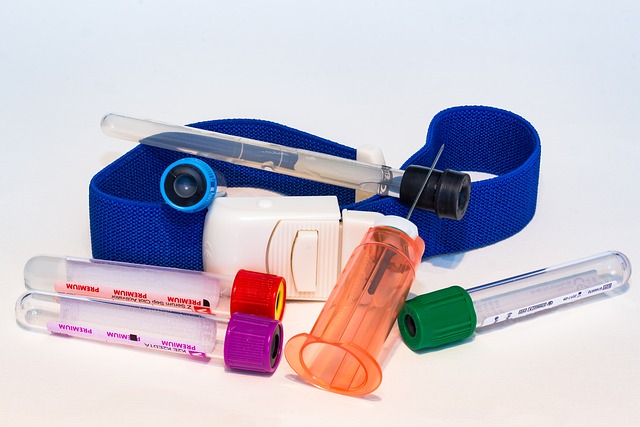Liver Function Tests (LFTs) are vital diagnostic tools measuring enzymes and proteins in blood to evaluate liver health. They identify early signs of damage, inflammation or conditions like alcohol-related issues, viral infections, or metabolic disorders. Preparation includes avoiding alcohol, fatty foods, and supplements for a week, staying hydrated, fasting 8-12 hours before the test, and consulting healthcare providers for tailored guidance. Regular LFTs are crucial for at-risk individuals to prevent complications and promote liver health.
“Uncover the power of a professional liver function test—a crucial tool for evaluating your liver’s health. This comprehensive guide delves into the science behind these tests, offering insights into what they measure and why they’re essential. From preparing for the test to interpreting results, we demystify the process. Learn about normal ranges, identify potential abnormalities, and discover the next steps for proactive liver care. Empower yourself with knowledge on liver function testing, a game-changer in maintaining optimal liver health.”
- Understanding Liver Function Tests: What They Measure and Why They Matter
- Preparing for the Test: Do's and Don'ts to Ensure Accurate Results
- Interpreting Your Results: Normal Range, Abnormal Findings, and Next Steps
Understanding Liver Function Tests: What They Measure and Why They Matter
Liver function tests (LFTs) are a crucial set of diagnostic tools used by healthcare professionals to assess the health and functionality of the liver. These tests measure various enzymes, proteins, and bilirubin levels in the blood, providing insights into how well the liver is working. By evaluating these markers, medical experts can detect abnormalities that may indicate liver damage, inflammation, or other conditions affecting liver function.
The significance of LFTs lies in their ability to identify early signs of liver issues before symptoms become apparent. They are often recommended as part of routine check-ups or when there is a concern about potential liver problems, such as those associated with alcohol consumption, viral infections, or metabolic disorders. Understanding the results of these tests can help guide further investigations and inform treatment decisions, making them an indispensable component of comprehensive medical care.
Preparing for the Test: Do's and Don'ts to Ensure Accurate Results
Preparing for a liver function test is crucial to ensure accurate results. In the week leading up to the test, avoid consuming excessive alcohol and certain foods like crucially fatty meals or supplements that may interfere with results. It’s also important to stay hydrated by drinking plenty of water. On the day of the test, fast for at least 8–12 hours prior to have a blood sample taken. Refrain from intense physical exercise immediately before the test as it could impact your liver enzymes temporarily.
Don’t attempt to self-diagnose or prepare in an unconventional manner. Consult with your healthcare provider if you have any concerns about medications or underlying health conditions that might affect the test results. They can offer specific guidance tailored to your situation, ensuring a comprehensive and accurate assessment of your liver health through the liver function test.
Interpreting Your Results: Normal Range, Abnormal Findings, and Next Steps
A professional liver function test is a valuable tool for assessing liver health. By understanding what these tests measure, properly preparing, and interpreting the results accurately, individuals can take proactive steps towards maintaining a healthy liver. Regular checks, especially if there are risk factors or symptoms, can help detect potential issues early on, allowing for timely intervention and management. Remember, knowledge is power when it comes to your liver’s well-being.
